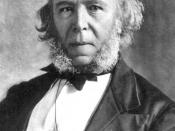Leadership
In today's chaotic world, the attention on individual leaders and their performance grows brighter. Those organizations that are supporting their value and the reputation of their leaders in these challenging times have one thing in common: leaders who pay attention to what they will leave behind them after they are gone. They ask themselves what values will sustain the organization over the long haul; what people will say of them; whether the organization they led will still be there to remember them; and if so, what position they will hold in the organization's memory.
Francesco and Gold the, "definition of leadership is not straightforward, especially in a cross-cultural context. One difficulty is that not all cultures have the term leader. The closest equivalent in Japanese, Chinese, and Korean to leader is similar to coach in English. Hardship captures the nature of the authority role in familial organizations, which are prevalent in Asian cultures.
In the German language. There is "no word exactly corresponding to the meaning of the term manager in English. Present-day Germans also avoid using the German word for leader because of its association with Hitler". Of course, the variety of terms used in different cultures does not mean leadership is absent, but rather that the nuances indicate that different cultures vary in their understandings of and expectations for authority roles." (Francesco and Gold)
The irony at the heart of organizational leadership is that the leader must add value to the organization but must not take it away when he or she leaves. An essential part of a leader's job is to become dispensable through creating a culture of leadership that extends throughout the organization. There are a number of "models" of leadership - but they are all essentially attempts to develop an effective metaphor for...



leadership
A lot of information and very well written
0 out of 0 people found this comment useful.